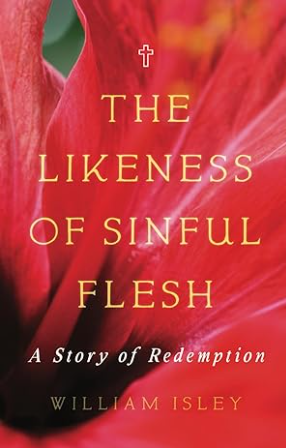The ancient Greeks tragedies saw all of man’s efforts overruled by cruel and blind fate. Karl Marx said man was subject to economic determinism. B.F. Skinner contended that human behavior was determined by genetics and environment. For atheistic existentialists, like Sartre, the human condition is to be trapped in a meaningless universe from which there is no escape. Both fairy tales and the Bible disagree.
In a recent post http://www.billisley.com/?p=738 I mentioned that, according to Tolkien, the third function of fairy stories is escape. In Tolkien’s essay “On Fairy-Stories,” he writes that these tales have four functions:
- Fantasy is man’s imaginative faculty that enables him to create mental images of things not actually present. For example, I’m picturing a juicy hamburger while sitting at my computer.
- Recovery is the regaining of a clearer view. In particular, when we are caught up in the fantastic world of a good fairytale, we begin to see our everyday or quotidian world in a new light. The apparently trivial is no longer so. In his commentary on Psalm 139:15’s description of God intricately weaving us in our mother’s womb, John Calvin marvels at God’s inconceivable skill in making the human body, “even to the nails on our fingers.”
- Escape results from the new way of seeing reality that happens in recovery. We see that things don’t have to be the way they are. That we can imagine a different world means that we are not necessarily enslaved to our present reality. There is a way out of difficulties, even tragedies.
- Consolation is the happy ending which often comes about in unexpected ways.[1]
Parallel to Tolkien’s understanding of escape is the biblical understanding of salvation as deliverance from a seemingly hopeless situation. The Hebrew root rhb means “wide” or “large” and is used in contexts that describe an escape from difficulties.
For example, Isaac had moved two times because of disputes over wells. In a dry land wells were necessary for survival. When Isaac found a place where he was able to have a well, he called the place “Rehoboth,” because “the Lord has made room for us” (Genesis 26:22). Rehoboth (rhb root) means “wide places” or “room.” God had delivered him from a difficult situation in which there seemed to be no way out.
The same idea and Hebrew root is found in Psalm 18:36 in which David celebrates his rescue from his enemies, who were more powerful than he and sought to kill him. He sings, “You gave me a wide place for my steps under me, and my feet did not slip” (ESV). Instead of a narrow ledge or tightrope to walk on, God had made a broad and safe way for him.
Tolkien writes that the escape imagined in fairy tales points to the desire for escape from hunger, poverty and injustice. He then mentions the “Great Escape,” the escape from death. Paul calls death “the last enemy” and tells us that it will be destroyed in the end at Christ’s coming (1 Corinthians 15:26).
The Christian gospel promises a way out, an answer to all the truly human longings which seem to go unfulfilled, indeed to seem unfulfillable. However, because there is a just God and because Christ is risen from the dead, death has lost its sting and been swallowed up in victory (1 Corinthians 15:54-55).
As such, the Christian gospel offers a realistic hope. Faith, like man’s imagination, can see possibilities hidden in the midst of apparent impossibilities. The gospel offers realistic hope first because it is based upon reality. It is not pretending or wishful thinking. Hope and faith are based upon the fact that Jesus Christ is not dead. He is risen.
Christian faith and hope is realistic too about the human predicament in the sense that it looks to the end of history for the complete realization of human dreams for justice, prosperity, peace and the end of suffering and death. Those who look for individual perfection or a utopian society before God’s final action in history are doomed to disappointment and despair.
Yet the Christian faith does not offer a mere pie-in-the-sky hope that leaves the world unchanged. It was this hope that brought the Roman Empire to its knees. Speaking of those executed for their faith, Athanasius said, “This was the faith that conquered the world. Not that they did not die, but that they did not fear death.” It was this hope that led a William Wilberforce to spend his life fighting for the end of slavery in the British Empire, even though he didn’t see it happen in his day. It is this hope that gives us the strength to pick ourselves up after repeated failures and to strive again. Because of the resurrection Paul tells us that our efforts are not in vain (1 Corinthians 15:58).
The angel Gabriel told the Virgin Mary, “For nothing will be impossible with God.” Let our response be as hers, “Behold, I am the servant of the Lord” (Luke 1:38). May we not say with Tolkien that the gospel is the true fairy-story? I think so.
[1] See pages 66-84 in his essay contained in Essays Presented to Charles Williams, ed. By C. S. Lewis (Grand Rapids, MI: William B. Eerdmans, 1966), pp. 38-89.

